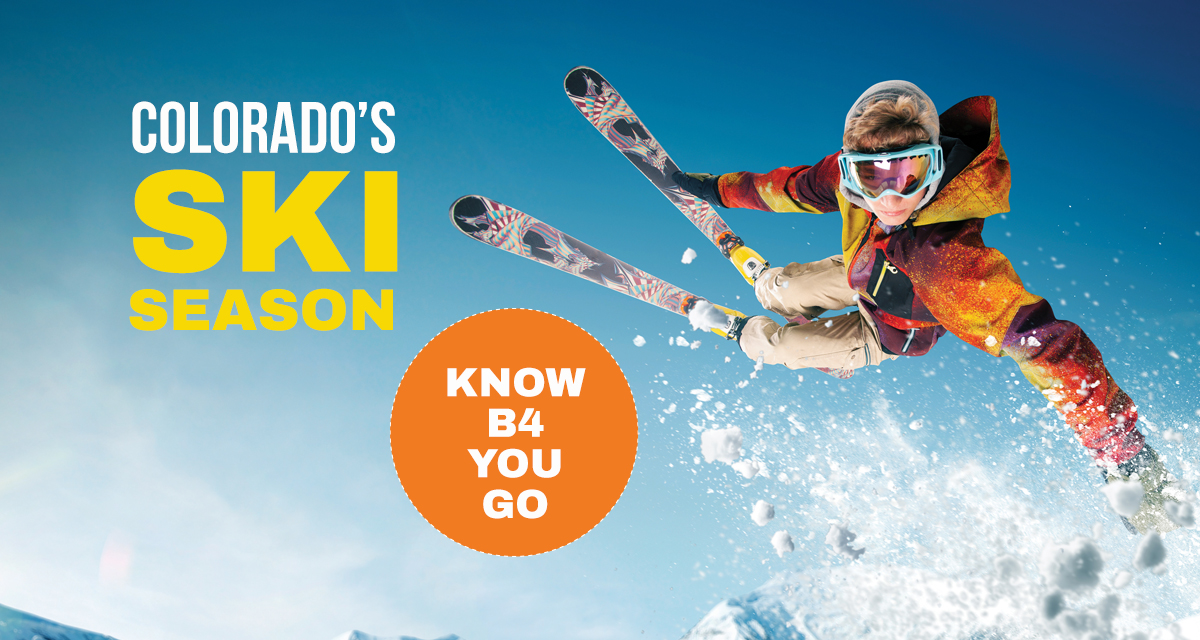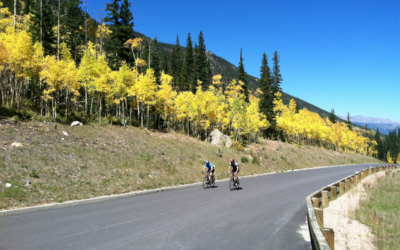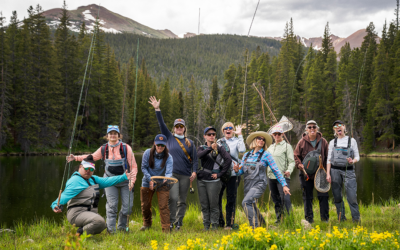By Heidi Kerr-Schlaefer
Everything looks a bit different in the world today, but this winter, skiers and riders can forget all that as they swish and slide down the mountains of Colorado.
Last year, skiing came to an abrupt halt as resorts and ski areas closed in mid-March due to COVID-19. Colorado Ski Country USA (CSCUSA) represents 22
ski areas and snowboard resorts in Colorado. The association concentrates on marketing, public policy and public relations.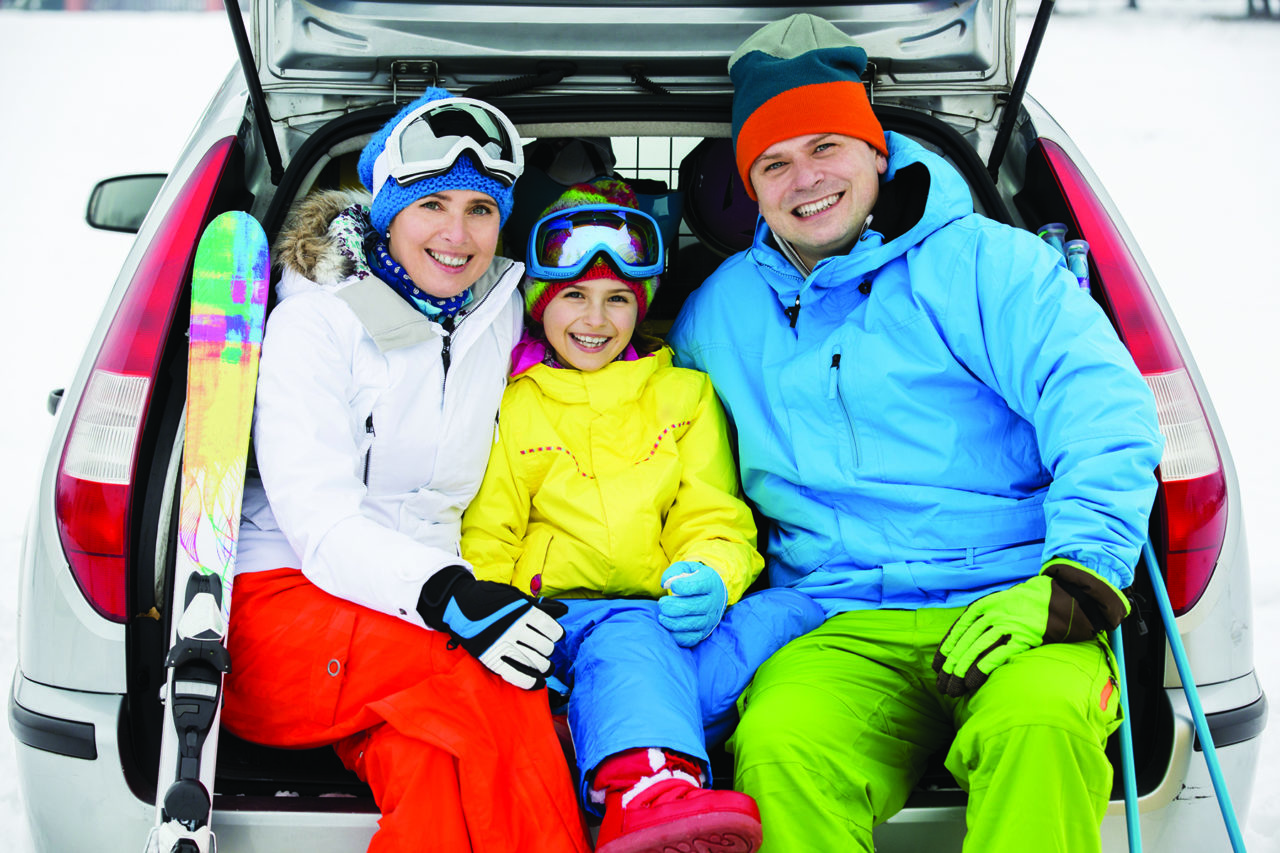
In an average year, Colorado sees nearly $5 billion in economic impact from the skiing and snowboarding industry. According to Chris Linsmeyer, public affairs
director for CSCUSA, the ski areas and resorts missed out on 30 to 40 percent of their annual revenue.
For this season, while there are still a lot of unknown obstacles ahead, the ski industry remains hopeful.
“The ski industry is just about the most optimistic group of people you’re going to find,” says Linsmeyer.
Skiing and snowboarding are naturally selfdistanced sports where participants bundle up, sport goggles and often wear masks. While the snow will still be fluffy and the turns better than anywhere in the world, a few things will look a little unfamiliar at the ski areas around the state.
First and foremost, “know before you go” is going to be a ski and ride mantra this year. No one wants to sit in traffic for several hours only to realize that they can’t ski or park unless they have a reservation.
While some resorts are requiring reservations, most of the 22 Colorado Ski Country USA ski areas are not— yet. Arapahoe Basin Ski Area for instance, is doing no on-site tickets sales. Single-day tickets must be purchased in advance online and sales will be limited.
Arapahoe Basin pass holders and Mountain Collective pass holders don’t have to make reservations, but Ikon passholders do after November 9. Copper and Eldora require reservations to park. These are the important bits of information skiers and riders need to know before heading up to their favorite slope this year.
While the experience on the mountain isn’t going to change much, base life is going to look different. For instance, this year, The Beach will not be open at Arapahoe Basin. Also, at all 22 of CSCUSA’ s ski areas, rentals and lessons need to be booked in advance.
At Winter Park, the oldest, continuously running ski resort in Colorado, summer was good. Their trestle bike park was open from June 27 to the end of September, and guests were grateful the resort was open so they could get outside and do the things they love, like biking and hiking.
“I think winter will be similar,” says Jen Miller, public relations and communications manager. “I think people, in particular Coloradans, want to ski, want to be in the mountains and want to be outside. I think people are cautiously optimistic.”
Of course, like all resorts, safety of guests and staff is number one at Winter
Park Resort. Perhaps the biggest changes guests will notice at the base of every
mountain in Colorado is related to the aprés ski experience. Grab-n-go is going to be king slope side and ordering ahead at restaurants will be encouraged and congregating will be discouraged. Sit down dining will be limited, and at some ski areas, nonexistent. Guests need to plan accordingly.
Instead of making new friends at the bar, guests will spend more time with the friends and family they came with. It may inspire some to book a condominium for the weekend, instead of driving home for an après ski-like experience in their room.
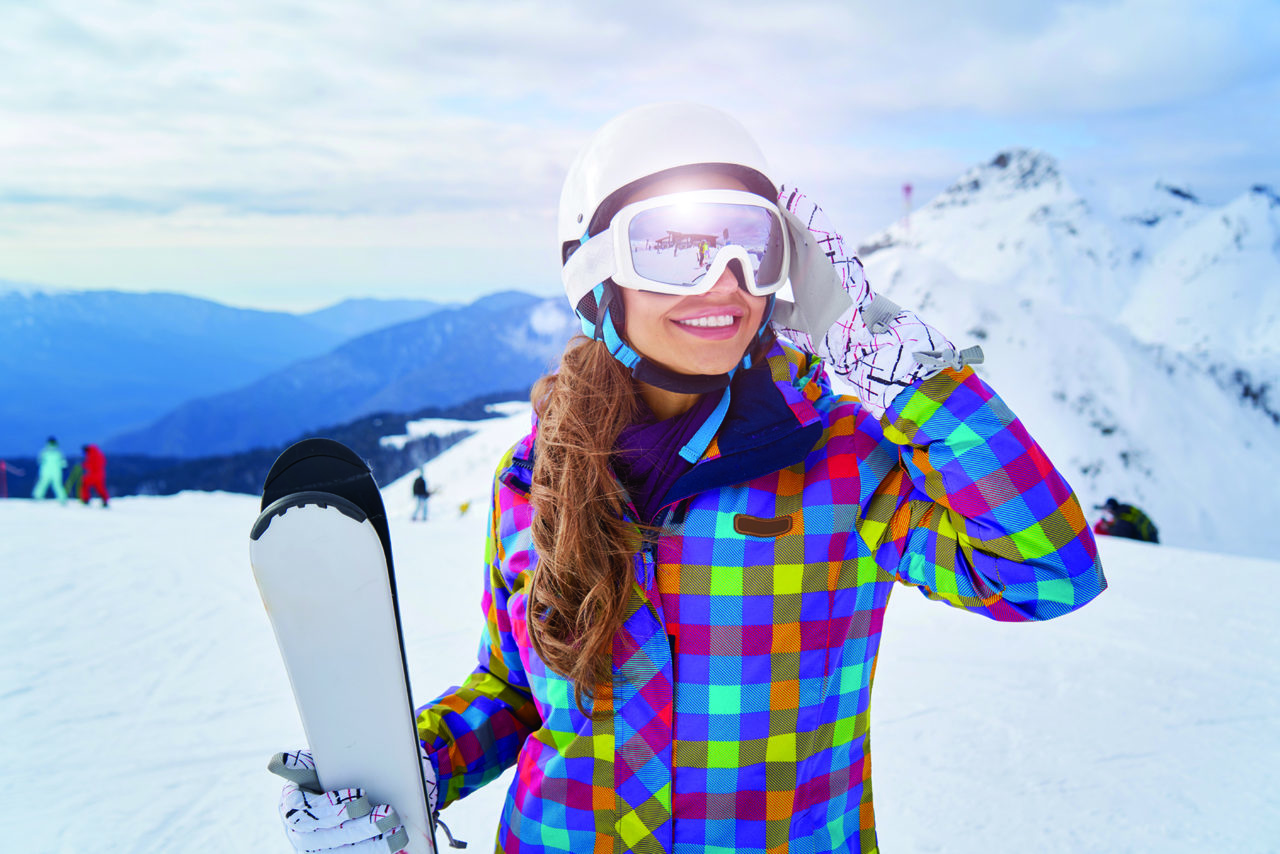
“People need to be flexible and adaptable to a new way of doing things,” says Miller. “Hopefully, just for this year.”
There will be signs around resorts reminding people to wear masks and social distance. At Sunlight Mountain Ski Resort in Glenwood Springs, they are encouraging guests to consider their car to be their basecamp. Particularly at the start of the season, and over the holidays, services will be limited at most bases.
Again, it is best to know before you go. Expect minimal indoor activity at mountain resorts and plan to spend more time outside on the slopes, knee-deep in the white stuff.
Each ski area is subject to state and county regulations regarding COVID-19, so protocols may change during the season (and maybe, several times). Because of this, it is wise to check the rules and regulations immediately before going up for a day or weekend in the mountains.
Booking ahead is going to be key this year and there will not be room for spontaneity. CSCUSA has a COVID-19 link on its website, ColoradoSki.com. Here, a visitor can click on any of the member resort logos to get up-to-date COVID-19 information directly from the resort.
Knowing and understanding the protocols that are in place, what access looks like and what is expected ahead of the trip will make the ski and ride experience much better for each guest.
Despite the changes, guests of all resorts can take refuge in the happy fact that Colorado skiing is the best in the world, and it’s going to be more about skiing and riding this year than anything else.
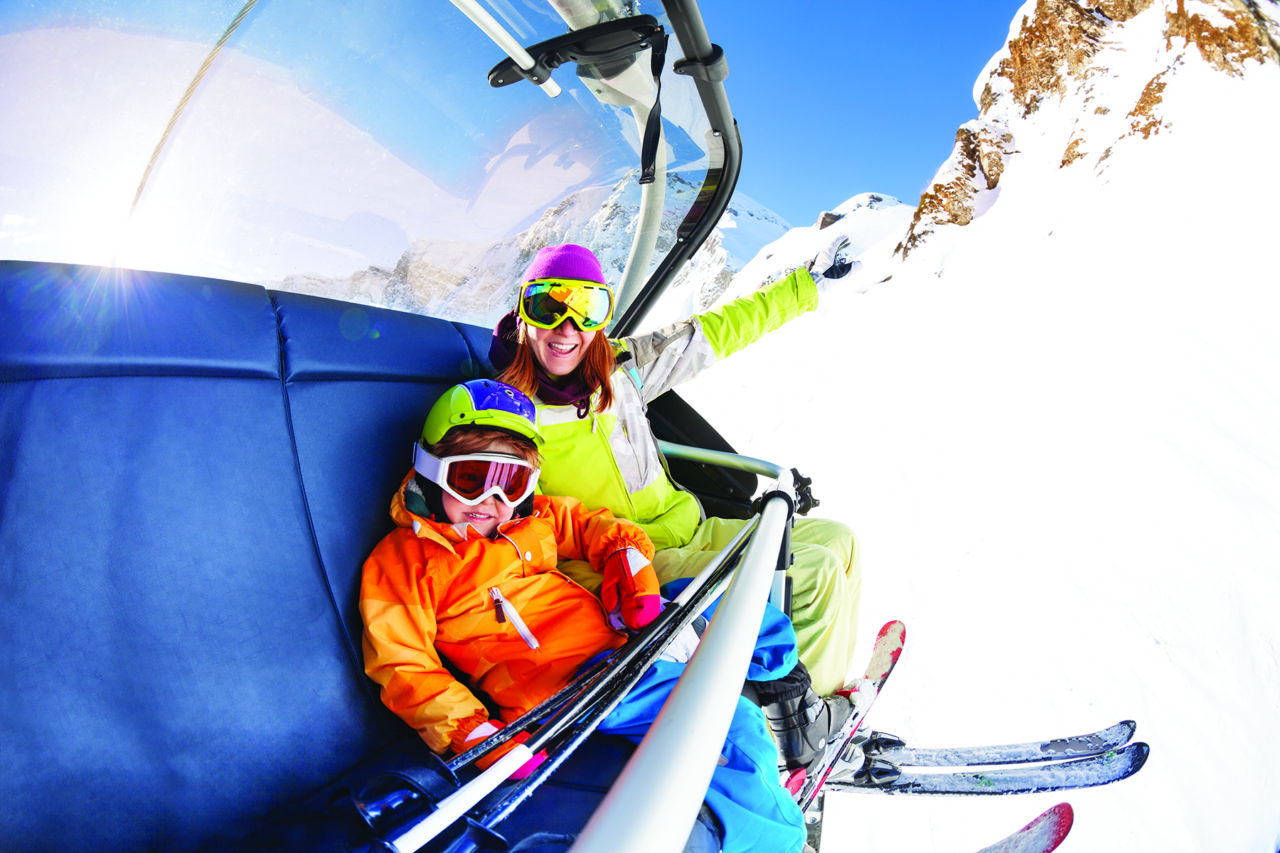
There have been some changes to resort infrastructure unrelated to COVID-19 this year. Arapahoe Basin has replaced two chairlifts and Powderhorn Mountain Resort has put in a new gravity-fed snowmaking system. In addition, Aspen has added top to bottom snowmaking at Aspen Mountain and replaced a quad chairlift with a sixperson chairlift.
Heidi Kerr-Schlaefer is a freelance writer from Loveland. She is the founder of HeidiTown.com and covers travel, festivals and The West. To comment on this article, email letters@nocostyle.com

